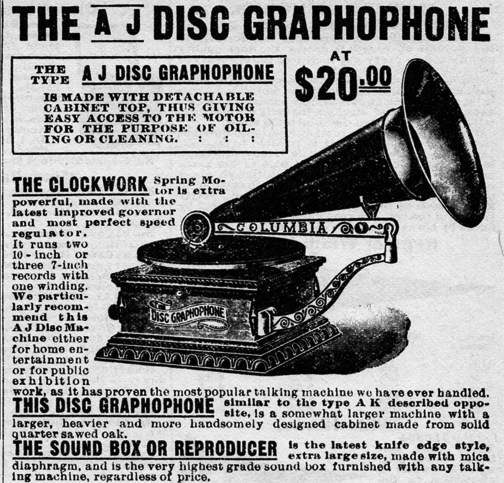Music Through the Ages of Technology
As a creator of music in the 21st century, I find myself living during an immensely significant time. There are many new technological breakthroughs that are directly influencing music, how we perceive it and how we create it. Throughout the ages, music and art went hand in hand with politics, technology and most aspects of our social life. One can see how technology has had a direct influence on music in the past and present. In order to have a better understanding of where we are heading, it’s always a good idea to look back and examine the past.
One of the illustrative and historical examples is the invention of the phonograph, a device introduced in 1877 by Thomas Edison. While there were other devices that were able to record sound, the phonograph was the first device that was able to produce it. It’s not hard to imagine that the appearance of the phonograph caused very conflicting feelings and opinions in music circles. Until that point, in order for someone to enjoy the art form of music, they had to either create it themselves or witness someone else creating it. The invention of the phonograph influenced not only musicians, but also the listeners and other professionals involved in the process (ie. piano manufacturers). After the phonograph entered the market, piano sales dropped, as this was no longer the only way for the public to enjoy music in their home.
Many musicians thought that the appearance of the phonograph would be detrimental to their careers. It meant that their set of skills would no longer be utilized in the same way. Now they would perform something once, and it could be recorded and kept forever; this caused some people to claim that live performances would be extinguished, but here we are over 150 years later, still performing live. There were also those who were more enthusiastic and welcoming of change; these musicians took full advantage of the new technology not only by utilizing it (creating recordings), but also by adapting to it and developing new skills that would compliment it (being more creative in the studio and accomplishing things that couldn’t be done live).
The 1920’s was the next momentous mark in the history of the American mass media culture. One of the defining reasons for this was the appearance of the radio in households across the country. The radio paved the foundational ground for continued technological developments in the field of mass media that we continue to witness today.
Just as the appearance of the phonograph stirred significant change, the integration of electronic media had a direct effect on the previous domination of print media as well as many other spheres, music included. While many aspects of change took place during this time, my interest lies in the way electronic media influenced music. One of the prominent changes that occurred was that music suddenly became much more accessible to many more people. In a way it’s similar to the appearance of the internet in the 20th century. In the 1920’s it felt like just as big a change and just as overwhelming as the internet feels to us now. Suddenly music was taken from private music rooms, concert halls, bars, etc. to devices streaming to anonymous listeners all over the country. This automatically changed the way that music had to be performed because of the new standards provided by this technology. One of the many examples is the length of songs; radio had a direct influence on the fact that in popular culture we have a standard length for music. This was based on many things varying from the listener’s attention span, to the technicalities of the station’s music programming, as well as advertisements to support the station.
Even though we have a significant amount of history to draw conclusions from, we are still facing a time of exciting and unpredictable change. If there is one thing that we can know for sure, it is that music will always exist. We will inevitably adapt to the change until the next one occurs and then we will have to do it all over again. I think that at this time we should not resist change, but utilize it to our own advantage. This is the time when new genres will emerge. There will continue to be all sorts of new ways to deliver and perceive music, and it is quite an exciting thing to say that we will be a part of this change.
Tatiana Kochkareva


No comments yet.
Add your comment